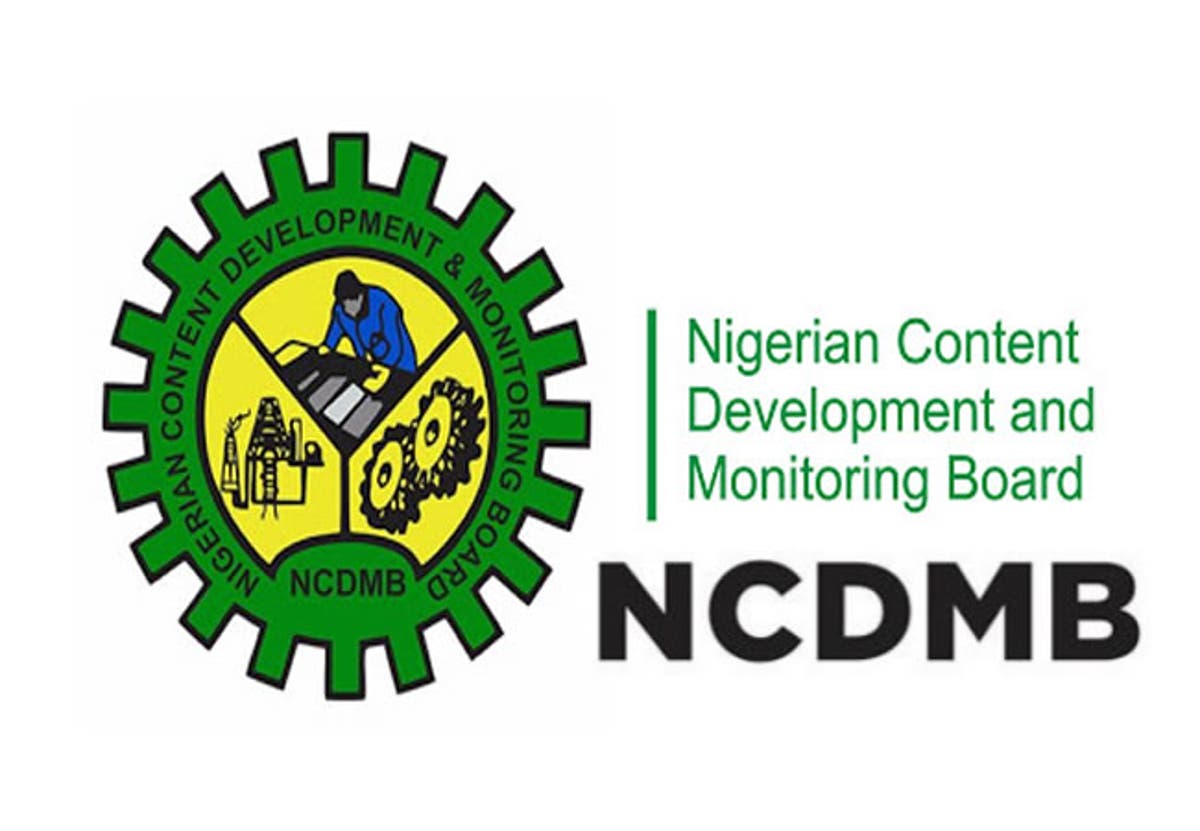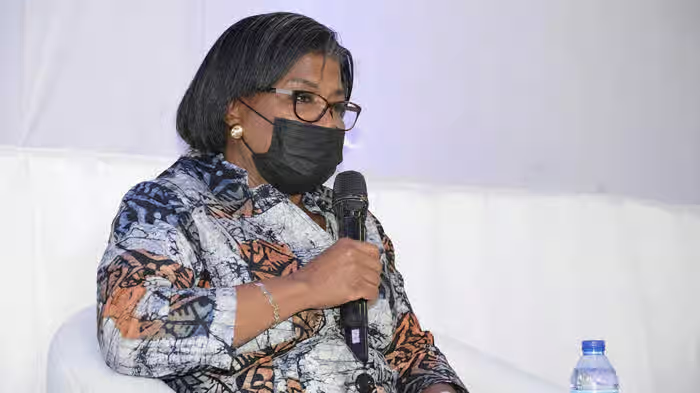 DESPITE the warning by the Central Bank of Nigeria (CBN) against the dollarisation of the Nigerian economy, many institutions still indulge in foreign currency payment for services and sales in some super stores.
DESPITE the warning by the Central Bank of Nigeria (CBN) against the dollarisation of the Nigerian economy, many institutions still indulge in foreign currency payment for services and sales in some super stores.
The CBN had last month said it would not hesitate to invoke relevant sections of its enabling act on any one caught flouting the directive, which specifically made it a punishable offence for any one to pay or collect Dollar for any service or product within the country.
In its letter to all commercial banks last month, and tittled: Currency Substitution and Dollarisation of the Nigerian economy” Mr. K.O Balogun, who signed for the director of Banking supervision, said he was aware of the rising trend of currency substitution and dollaristaion of the economy in the recent time”.
He condemned the development, saying the Naira remains the only legal tender in the country. “Please be reminded that section 15 of the CBN Act 2007 provides that the unit of currency in Nigeria shall be the Naira.
Section 20 (1) of the same Act provides that the currency notes issued by the Bank shall be legal tender in Nigeria at their face value for the payment of any amount and section 20 (5) further provides that a person who refuses to accept the Naira as a means of payment is guilty of an offence and liable, on conviction, to a fine or 6 months imprisonment.”
Continuing, he said: “based on the above provision, the general public is hereby warned that it is illegal to price or denominate the cost of any product or service (visible or Invisible) in any foreign currency in Nigeria and no business offer or acceptance should be consummated in Nigeria in any currency other than the Naira.
Consequently, deposit money banks operating in Nigeria are advised to desist from the collection of foreign currencies for payment of domestic transactions on behalf of their customers and the use of their customers’ domiciliary accounts for making payments for visible and invisible transactions (fees, charges, licenses etc.) originating and consummated in Nigeria.”
But investigations have revealed that dollarization of the economy is continuing unabated as many private institutions are still colleting dollars for local services and products.
Most guilty of the offence are private schools, super stores and hotels in Lagos and Abuja where many have adopted a new method of collection in order to circumvent the CBN order by collecting the Naira equivalent of their Dollar charges.
An International School in Lagos still issued the 2013/2014-school fee structure to parents willing to secure admission for their wards last Thursday.
According to the fee structure, boarding fees, tuition, development levy and others was put at $13,500 per term, while day students are expected to pay $7,900 per term. Going by the fee structure obtained from the school, the total sessional fee for boarding was $30,400 and $17,300 for day students.
The only aspects of the fees to be paid in Naira are application fee (N20,000), registration (N20,.000) textbooks (N85,000) uniform (N85,000) PTA Levy (N5,000) and the school’s year book that attracts (N5000) Another school in Isolo, Lagos, is guilty of the offence, going by the directive from the CBN.

The school accepts Dollar for all payments including school fees, although it allows parents to pay the equivalent in Naira. Here, fees are graduated according to the grade of pupils.
For instance, pupils in grade four are required to pay N12,500 or $78, $50 for registration form, N30,000, $18 or 120 Pound Sterling for uniform , N30,00 or $168 and 120 Pounds for books, N125,000 or $781 and 500 Pounds as fee, to make it a total of N202,500 in Naira denomination per term.
Some Nigerians don’t see anything wrong with the trend as they continue to give strength to institutions that offer them dollar option in the payment for services. They said they would continue to patronize them, provided their standards remained unchanged.
Blessing Eboh, a business man at Ogudu, Lagos Metropolis, said he would continue to send his children to schools where option of `dollar or Pound Sterling is given for the payment of school fess.
He believes that such schools are affiliated to foreign schools, besides the operation of a foreign curriculum “The reason why they are collecting fees in Dollar is that they are affiliated to schools in the U.K. U.S and Canada.
They operate the same academic curriculum with these schools, they are into exchange of programme with these affiliates. They also exchange teachers who collect Dollars, depending on their country’s currency.
Because of the CBN order, they are now collecting the Naira equivalent, which they can easily convert to dollar to continue with their business. If we want to be sincere with ourselves, the CBN should start from top government officials who have stockpiled their homes with Dollars and Pounds Sterling.
During the presidential election, they were spending raw dollars and who dare caution them that time. They should allow us to breath in this country. Anybody that has Dollars should be allowed to spend it.
 They should be concern about how to fix the electricity problem, make fuel available, give us good roads, and provide employment for our young ones. That is what we need now.”
They should be concern about how to fix the electricity problem, make fuel available, give us good roads, and provide employment for our young ones. That is what we need now.”
To Atedo Peterside, the Chairman of Stanbic IBTC bank Plc, government should not criminalize the spending or reception of Dollars for services locally.
He however recommended that such business transactions should be carried out within the nations banking system. “I don’t not subscribe to the notion that dollarisation is a crime.
It is not, it is a global trend borne out of a natural desire to replace uncertainty. We should therefore work on reducing uncertainty, instead of fighting the symptom.
The priority should be to reduce uncertainty and get business transacted through our banking system, even if that entails foreign currency and domiciliary account,” he said.
To Professor Pat Utomi, the use of foreign currency locally will put pressure on the Naira. He said no country in the world would allow that to happen, because “it takes away the capacity to manage the economy.”
According to him, a large portion of the Chinese reserve “is in the Yuan, Chinese currency, but Nigeria cannot keep its reserve in Naira because Naira is not traded at the international market.
According to him, retaining foreign reserve in dollars was not an issue but a case of mismanaged economy.” Dr Ayadi Folorunso, an economics lecturer at the University of Lagos said, “dollarization could lead to scarcity of dollars, and increase in exchange rate against the naira.
Nigeria is a consuming economy so Dollars literally change hands without any additional value to the economy.” Continuing, he said, “the use of foreign exchange for domesic transactions eventually leads to scarcity for international transactions.
It does not add value to the economy because it is just a direct transfer, an unproductive purpose, that is not beneficial to local currency,” he said.
The hue and cry that followed the Dollarisation of the economy and the warning from the apex bank has forced schools and some high profile retail outlets to change style of collection in Abuja.
 Many now collect the Naira equivalent of their Dollar charges, while many others have become so discrete in the collection of foreign currencies for services.
Many now collect the Naira equivalent of their Dollar charges, while many others have become so discrete in the collection of foreign currencies for services.
They now collect the foreign currencies only from trusted and known customers Before now, it was common to see private schools, supermarkets, grocery shops, hotels and restaurants openly collecting Dollars for their services.
A visit to some of these popular institutions in Abuja revealed that they are more discrete about their operations as they now transact business in Dollars with a circle of people.
They now collect the Naira equivalent of their Dollars charges from those not familiar to them. Many of them are no longer willing to collect Dollars on the counter like they used to do.
A very popular departmental store located in Area 11 was one of the foremost shops that once charged and collected Dollars openly for its goods, but a visit to the same shop showed a different picture.
Pretending to be a foreigner, the reporter picked some items on the shelf and presented a $20 note. Though the guy at the counter rejected it, a close observation of him gave him away that he was not altogether new to such payment.
After persuading him for a while with the claim that the reporter doesn’t know where to change the Dollar to the local currency, the guy left the counter and entered a door behind, it took a while for him to come out and when he did, he told his purported customer that she should go to zone 4 to change the money and that ended the discussion.
Some popular malls in the FCT are said to be rented out per square meters in Dollars. These are the kind of malls one can see anywhere in the globe. Serene, well-managed, central cooling systems and even background music along the corridors.
These kinds of malls house subsidiaries of foreign shops and so getting to buy made-in-Nigeria goods in such places could be mission impossible.
There are also kiddies shops located in some highbrow areas of the city where one can buy toys and other children items both in local and foreign currencies.
Some roving service providers in Abuja have also been collecting foreign currencies for their services. They are mainly speech and poise tutorials, facial treatments, pedicure and manicure services etc.
One of the speech tutors, who interacted with the Guardian via telephone, said they teach people on public speaking, presentation and how to carry oneself in public. He explained that clients who wish to pay in Dollars are allowed to do so.
However, his price list indicated that he was collecting the Naira equivalent of his Dollar charges Private schools with Montessori curricular and system of education used to collect fees in foreign currencies.
They now collect fees in Dollar indirectly, as they now collect the Naira equivalent of the school fees in Dollars. But either head or tail, the amount paid still amounts to the same thing.
Findings also revealed that there are houses and apartments that were rented out in Dollars in the city. Foreigners who are either businessmen in Nigeria or contractors are occupying many of such houses.
The reality generally in Abuja and Lagos is that transactions are still done in Dollars, but in the most discrete manner. The ball is in the court of the CBN to enforce and not just make pronouncement.






